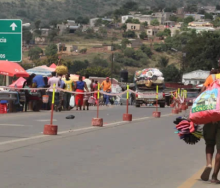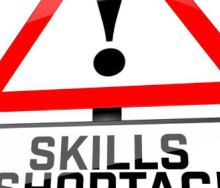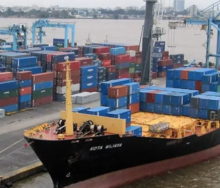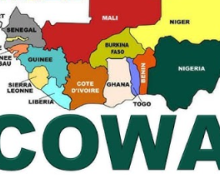Following a strong rebound in 2021, the global economy is entering a pronounced slowdown amid fresh threats from Covid-19 variants and a rise in inflation, debt, and income inequality that could endanger the recovery in emerging and developing economies, according to the World Bank’s latest Global Economic Prospects report.
Global growth is expected to decelerate markedly from 5.5% in 2021 to 4.1% in 2022 and 3.2% in 2023 as pent-up demand dissipates and as fiscal and monetary support is unwound across the world, the report states.
“The rapid spread of the Omicron variant indicates that the pandemic will likely continue to disrupt economic activity in the near term. In addition, a notable deceleration in major economies - including the United States and China - will weigh on external demand in emerging and developing economies.
“The world economy is simultaneously facing Covid-19, inflation, and policy uncertainty, with government spending and monetary policies in uncharted territory. Rising inequality and security challenges are particularly harmful for developing countries,” said World Bank Group president, David Malpass. “Putting more countries on a favourable growth path requires concerted international action and a comprehensive set of national policy responses.”
The report points out that the slowdown will coincide with a widening divergence in growth rates between advanced economies and emerging and developing economies. Growth in advanced economies is expected to decline from 5% in 2021 to 3.8% in 2022 and 2.3% in 2023 - a pace that, while moderating, will be sufficient to restore output and investment to their pre-pandemic trend in these economies.
In emerging and developing economies, however, growth is expected to drop from 6.3% in 2021 to 4.6% in 2022 and 4.4% in 2023. By 2023, all advanced economies will have achieved a full output recovery, yet output in emerging and developing economies will remain 4% below its pre-pandemic trend.
In sub-Saharan Africa, growth is forecast to accelerate slightly to 3.6% in 2022 and rise further to 3.8% in 2023.
Meanwhile, rising inflation - which hits low-income workers particularly hard - is constraining monetary policy, according to the report. Globally and in advanced economies, inflation is running at the highest rates since 2008. In emerging market and developing economies, it has reached its highest rate since 2011. Many emerging and developing economies are withdrawing policy support to contain inflationary pressures - well before the recovery is complete.
“The choices policymakers make in the next few years will decide the course of the next decade,” said Mari Pangestu, the World Bank’s managing director for development policy and partnerships. “The immediate priority should be to ensure that vaccines are deployed more widely and equitably so the pandemic can be brought under control. But tackling reversals in development progress such as rising inequality will require sustained support. In a time of high debt, global cooperation will be essential to help expand the financial resources of developing economies so they can achieve green, resilient, and inclusive development.”













